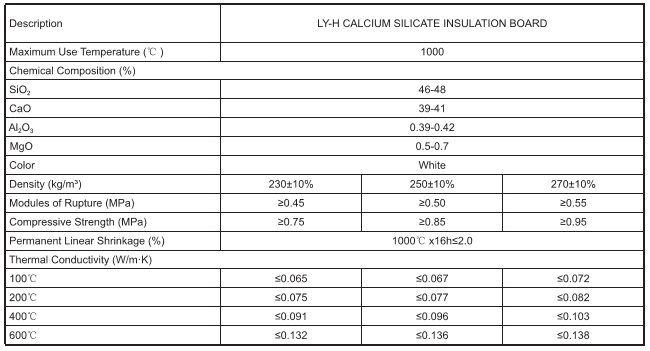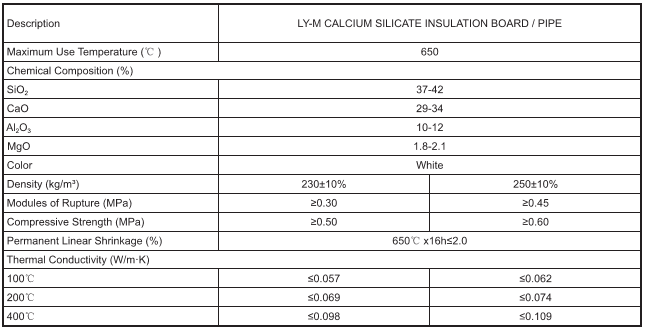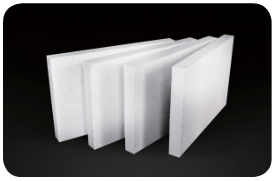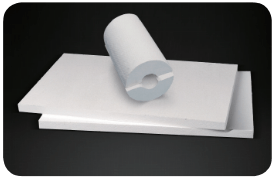Calcium Silicate Insulation
LY-H CALCIUM SILICATE INSULATION BOARD
LY-H Calcium Silicate Insulation Board
is manufactured from xonotlite and reinforced fiber. It is entirely asbestos-free and non-poisonous to the human body. LY-H board is a kind of high efficiency and energy-saving product, with the maximum heat-resistant temperature of up to 1000 ℃.
LY-H calcium silicate insulation board has characteristics such as excellent thermal stability, corrosion resistance, and convenient construction, which can be widely used in industrial furnace insulation.
Typical Parameters

Features
-
Excellent thermal stability
-
High rigidity and lightweight
-
Can be machined, cut and shaped easily
-
Low thermal conductivity
-
Low heat storage
Typical Applications
- Cement, ceramic, and glass
- Refining, iron, and steel
- Nonferrous
- Petrochemical
- Power Plant
LY-M CALCIUM SILICATE INSULATION SERIES
LY-M calcium silicate insulation series
include board, pipe, and other shaped products. LY-M calcium silicate insulation series is manufactured from tobermorite and reinforced fiber. LY-M series is a kind of high efficiency and energy-saving product, with the maximum heat-resistant temperature of up to 650 ℃.
LY-M calcium silicate insulation series has characteristics such as Low thermal conductivity, high rigidity, and convenient construction can be widely used for insulation in industrial furnaces and thermal pipelines.
Typical Parameters

“The data shown are typical average results of tests under standard procedures and are subject to variation. Results should not be used for specification purposes or creating any contractual obligation. For more information on the safety application or materials, please refer to the work practices and material safety data sheet.”
Features
-
Excellent thermal stability
-
High rigidity and lightweight
-
Low thermal conductivity
-
Low heat storage
-
Non-asbestos
Typical Applications
- Cement, ceramic, and glass
- Refining, iron, and steel
- Nonferrous
- Petrochemical
- Power Plant


